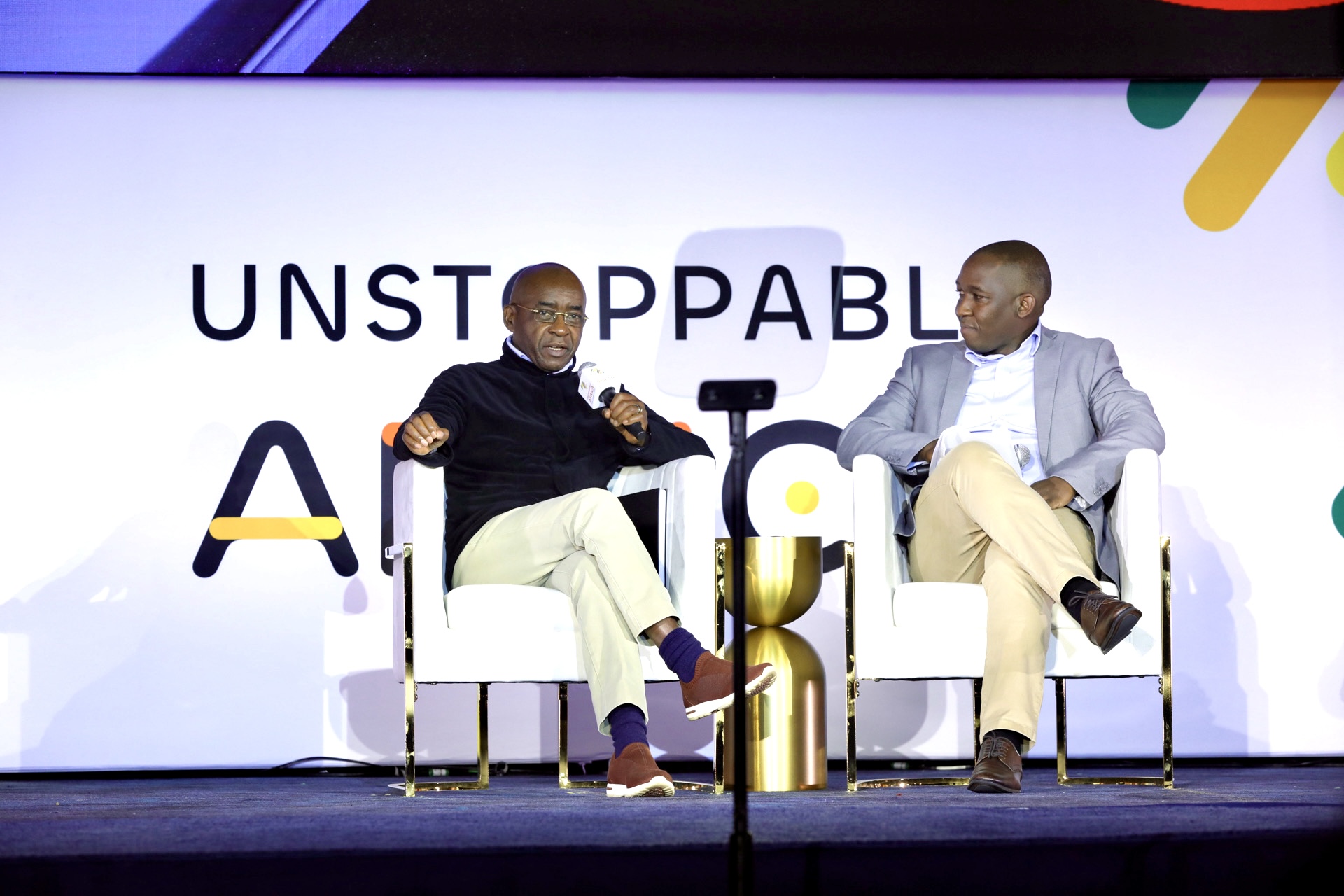Technology
STEMbees: Aburi Girls Senior High School To Represent Ghana at Global Robotics Competition

STEMbees -Twelve students from the Aburi Girls’ Senior High School in the Eastern region are representing Ghana this year in the 2021 FIRST Global Challenge – the fifth iteration of the global Olympics-style robotics event. This year’s theme, “Discover & Recover,” focuses on overcoming the COVID-19 pandemic by discovering opportunities for innovative recovery and will have participants represented from over 160 countries participating. From social projects to miniature satellites to robot design, teenagers from around the world are required to develop solutions to problems the COVID-19 pandemic has presented.
The all-girls Team Ghana is being mentored by the STEMbees Organisation and will be a part of this virtual season which began on 27 June 2021 and will end on 28 September 2021. There are three main components which are a Solutions challenge, a CubeSat challenge and a Robotics challenge.
In the Solutions Challenge, teams are to innovate STEM (Science, Technology, Engineering and Mathematics) solutions to local problems resulting from the pandemic in the areas of education, environment, health and economy. Team Ghana’s solution is focused on making biodegradable nose masks from plantain fibres that are more comfortable and do not require strings to wear.
“At STEMbees we encourage young women to become problem solvers using technology. The problem this team identified is that a large number of Ghanaians do not properly dispose of the single-use nose masks. These disposable nose masks are made of polypropylene, which takes a long time to decompose and can carry a wide range of viruses including the coronavirus into water bodies, soil and ultimately to animals and back to us humans if not properly disposed of. Also, many people complain that the masks are uncomfortable to wear, causing them to wear them wrongly or not at all,” shares Angela Koranteng, a co-founder of STEMbees.
It has been discovered that plantain trees are readily available across the country. Often their stems are left to rot after the fruits are harvested. However, these pseudo-stems of plantain trees can be recycled into fiber, reducing wastage, and providing an affordable alternative to cotton to help produce more eco-friendly nose masks.

Aburi Girls SHS Students (Image: Supplied)
“An exciting part about this year’s FIRST Global Challenge is the prototyping of a CubeSat. The girls are designing and building a CubeSat miniature satellite prototype and will launch it into the lower layers of Earth’s atmosphere on 25th September 2021 at their school,” adds Koranteng.
Climate change has made our weather unpredictable with rapidly changing seasons and Team Ghana’s mission for the satellite prototype is weather monitoring (measuring temperature and aerial photos of clouds) as well as assessing air-quality within the Aburi area. Their CubeSat prototype will include a mini-camera, a digital temperature sensor and a laser particle sensor in a 3d printed cube box.
Technology
Unstoppable Africa 2025: Africa’s AI Ambitions and Digital Future Go Global

Major projects and initiatives that are set to position Africa at the heart of global innovation, notably the expansion of the continent’s AI infrastructure, were announced today at Unstoppable Africa 2025 in New York as CEOs convened to discuss Africa’s place in the global economy. This marks a significant step in enabling the continent’s stakeholders to develop local AI solutions designed to address some of Africa’s most pressing challenges.
Zimbabwean billionaire, Founder and Executive Chairman of Econet Global and Cassava Technologies, Strive Masiyiwa, announced that steps are underway to establish Africa’s first network of AI factories. Powered by NVIDIA GPUs, the facilities will be completed by the end of 2026, setting the stage for homegrown innovation and accelerating Africa’s participation in the global AI economy.
Another announcement came from Meta, presented by Kojo Boakye,Vice President, Public Policy Director for Africa, Middle East & Turkey. The company signalled upcoming investment opportunities in Africa’s digital ecosystem, highlighting its confidence in the continent’s growing tech and AI potential.
These initiatives reflect a shift toward locally led solutions and long-term planning, with a focus on robust systems, adoption of advanced technologies, and capital investment to drive regional integration and global competitiveness.
The second day of Unstoppable Africa 2025, flagship event of the Global Africa Business Initiative (GABI), united business leaders, African heads of state, global investors, and international institutions to accelerate the continent’s economic transformation. New commitments in infrastructure, advanced technologies and investment highlighted growing confidence in Africa’s private sector.
In the financial services sector, the Africa Finance Corporation (AFC) in collaboration with African Pension and Social Security Institutions launched the ‘Africa Savings for Growth’ initiative to explore ways to channel African institutional savings into longer-term investments that support inclusive growth. The continent-wide initiative builds on AFC’s 2025 analysis identifying at least $1.17 trillion in institutional assets across Africa, much of it still allocated to short-term, low-yield instruments.
The Global Africa Business Initiative launched two new GABI Action Pathways focused on digital transformation and healthcare aiming to connect businesses, governments, and innovators working in sectors critical to Africa’s competitiveness and resilience.
The Healthcare Action Pathway aims to improve access to medical services through digital tools, build stronger regional supply chains, attract investment, and support the growth of Africa’s healthcare workforce. The Digital Transformation Action Pathway focuses on upgrading government services, expanding internet access and digital infrastructure, training people for future jobs, helping small businesses with tech and funding, and promoting responsible use of AI and data.
Discussions on Day Two focused on new partnerships, Africa’s digital growth, and the continent’s thriving sports and creative industries, including music and fashion.
The forum concluded by highlighting Ava DuVernay, acclaimed director, screenwriter, producer, and founder of ARRAY; 15 year-old Ellyanne Wanjiku Chlystun-Githae, Climate & Health Champion at Seeds for Leadership; Mpumelelo Tevin Mhlongo, Paralympic champion and triple world record holder; Marcus Samuelsson, chef, restaurateur, and author; and international singer-songwriter, Tiwa Savage, who also performed at the end of the event. Their inspiring contributions echoed the forum’s central message of empowerment, innovation, and sustainable progress across the continent.
Closing the forum, Deputy Secretary-General of the United Nations, Amina J. Mohammed said, “When people say Africa is resilient, they’ve got a different definition to resilience than we have. Africa’s resilience is about how we build on what we have and how we strengthen our markets, our economies and our democracies and I believe that the values and principles that we all hold are important. Unstoppable Africa is a space to remind ourselves that this is who we are, it is our narrative, on our terms that we go forth.”
Unstoppable Africa is the leading African business forum held outside the continent. Hosted by United Nations Secretary General António Guterres and H.E. Mahmoud Ali Youssouf, Chairperson of the African Union, the event took place just ahead of the 80th session of the UN General Assembly in New York. Unstoppable Africa aims to accelerate the continent’s economic transformation and empower Africa to take a leading role in shaping the markets of the future.
Technology
Kaspersky warns travelers: AI-powered attacks are targeting hotel guests

Between June and August 2025, Kaspersky’s Global Research and Analysis Team (GReAT) discovered a new wave of cyberattacks by a threat group called RevengeHotels, which targets hotels to gain access to guests’ payment information. The group has been operating since 2015 and has since upgraded its methods. The threat actor is now using Artificial Intelligence (AI) to make their attacks more effective and reach additional regions. Analysis shows that many of the new malicious programs used in these attacks contain code likely generated with AI, making them more sophisticated and harder to detect.
While hotels in Brazil have been the main target to date, such cyberattacks have also been reported in other countries around the globe. And considering that countries in Africa, including South Africa and Kenya, are popular tourist destinations, and Nigeria a popular business travel destination, it is important to consider that no country or hotel is immune to falling victim.
How the attacks work
The threat actor sends phishing emails directly to hotel staff, often disguised as requests for reservation or job applications. Once a hotel employee interacts with these emails, malware called VenomRAT is installed on the hotel’s systems, giving attackers access to guests’ payment data and other sensitive information. The emails often look convincing, coming from legitimate-looking websites.
“Сybercriminals are increasingly using AI to create new tools and make their attacks more effective. This means that even familiar schemes, like phishing emails, are becoming harder to spot for a common user. For hotel guests, this translates into higher risks of card and personal data theft, even when you trust well-known hotels,” comments Lisandro Ubiedo, expert at Kaspersky’s Global Research and Analysis Team.
To stay safe, Kaspersky recommends:
- Even if an email seems friendly, treat links and attachments with care. To protect your company, use solutions from the Kaspersky Next product line that provide real-time protection, threat visibility, investigation and response capabilities of EDR and XDR for organisations of any size and in any industry.
- Cybercriminals often distribute fake email messages mimicking email notifications from an online store or a bank, luring a user to click on a malicious link and distribute malware. If attackers are specifically targeting your organisation, the email text may be more customised, mimicking services or scenarios familiar to your company. With that in mind, fine-tune your antispam settings and never open attachments sent by an unknown sender.
- Try not to open unexpected files sent by you massively. They may be ransomware or even spyware, even attachments from official-looking emails.
Technology
Nigerian Risk Expert Unveils NaijaShield™, Africa’s First AI-Powered Stress Testing Engine

Nigerian-born financial risk specialist Oyindamola Ogunruku, currently a senior market risk analyst at Goldman Sachs, has developed a groundbreaking invention called NaijaShield™, an artificial intelligence-driven stress testing engine designed to transform how banks and regulators in frontier economies anticipate and manage financial shocks.
Traditional stress testing models were built for the stable conditions of developed markets and have proven inadequate for economies like Nigeria, where inflation, volatile exchange rates, and abrupt policy shifts create unique vulnerabilities. NaijaShield™ tackles this problem by combining machine learning, regulatory alignment, and predictive analytics to create a dynamic system that can simulate real-world crises in real time. The invention uses a risk detection engine to process market data, a simulator to model events such as currency crashes or oil price slumps, a scorecard generator to highlight exposures, and a regulatory module that syncs results with Central Bank of Nigeria requirements. Its final layer is a decision dashboard that gives auditors, executives, and compliance teams actionable insights at a glance.
Ogunruku describes NaijaShield™ as an intelligent early warning system that can help African banks strengthen resilience, prevent systemic risks, and build investor confidence. She has urged Nigerian regulators to establish sandbox environments where tools like NaijaShield™ can be tested safely before full deployment, noting that its impact could extend beyond Nigeria to other frontier markets with similar instability.
Her career reflects the combination of local insight and global expertise that makes this innovation possible. From designing adaptive risk scorecards at fintech firms in Lagos to managing market risk oversight at Goldman Sachs in the United States, she has consistently demonstrated an ability to bridge advanced analytics with real-world banking challenges. With peer-reviewed publications on AI in financial stress testing, anomaly detection, and green fintech, the unveiling of NaijaShield™ underscores her standing as a pioneer at the intersection of artificial intelligence, finance, and regulatory innovation.
“The future of financial oversight is not just digital — it is intelligent,” Ogunruku said. “NaijaShield™ proves that frontier markets like Nigeria can lead in developing the tools that make global finance safer.”
-

 Oil and Gas3 days ago
Oil and Gas3 days agoTotalEnergies, Chevron Push for Faster Permits, Better Seismic Data in Africa
-

 Afripreneur20 hours ago
Afripreneur20 hours agoRevolutionizing Cross-Border Payments in Africa: An Exclusive Interview with Onyinye Olisah
-

 Energy3 days ago
Energy3 days agoUnited States (U.S.) Political Will, African Reforms Signal New Era for Energy Investment

















